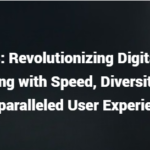The modern pagan religion of Wicca, which has origins in pre-Christian customs, has created a special judicial structure called the wiccap. Wiccan courts, in contrast to traditional legal systems, function according to spiritual ideals, promoting a sense of justice and community based on Wicca’s spiritual practises.
Cases, financial matters, legal forms, and other court-related matters are all expertly organised by CCAP. Information is shared with other organisations in Wisconsin and across the nation, and court documents that are accessible to all citizens under Wisconsin law are easily accessed.
History of WicCap and Legal Systems
Originating in prehistoric paganism, Wicca has developed into a unique contemporary religion. A parallel judicial system developed to handle internal community issues as WicCap gained popularity. Comprehending the historical background offers a valuable understanding of the evolution of Wiccan courts.
The information on the WCCA website is restricted and has certain limitations, which are as follows:
At its own speed, each nation implemented the circuit court case management system and decided whether to backload or convert its current cases. It’s possible that converted instances display less data.
Records that are not accessible for public inspection are not published on the WCCA website. Court records pertaining to adoptions, juvenile delinquency, guardianship, termination of parental rights, and civil responsibilities are all considered secret.
Every hour, case information is posted to the WCCA website, barring planned maintenance or technical issues with the service. Regarding such changes, the WCCA website has accurate information. The WCCA programme might not be accessible every night between 3:00 and 4:00 a.m. Central Time due to maintenance.
The official verdict of each county and the circuit court clerk’s office are where the lien docket is maintained. Although WCCA accurately represents the information entered into the circuit court case management system, it is not the official judgement or lien docket.
WI Circuit court Rules
The Supreme Court’s rules and associated materials are available here. These consist of the following: procedures, regulations in effect right now, orders, notices, petitions, and archives. Below is a deeper explanation of these:
Current Rules:
To see the Supreme Court rules (SCR) per chapter in Adobe PDF format, one must utilise the keyword search to filter by rule numbers, a word, or a specific phrase. As changes are approved by the Wisconsin Supreme Court, the regulations are updated.
Procedure:
The Supreme Court has the authority to make rules under Wis. Stat. 751.12 and the administrative jurisdiction over all courts granted by Article VII, 3 of the Wisconsin Constitution. The court devised internal operating procedures to control the rule-making process. In June 2010, the Wisconsin Supreme Court formed an advisory panel to research and offer recommendations about the court’s rule-making procedure.
Steps involved in submitting a rule petition:
Anybody may propose modifications to Supreme Court Rules, pleading, practise, procedural legislation, and administrative issues by submitting a petition to the Supreme Court. To ensure that a petition is sufficient and to promote uniformity in the petition format, the petitioner must abide by the regulations. A petition to the Supreme Court to propose a new rule or amend an existing rule must be submitted with a cover sheet and accompanying memoranda.
Remarks about a rule petition:
Everyone has the opportunity to provide feedback on a pending rule petition throughout the comment period. All feedback must be made in accordance with the stated guidelines. Before being published, every comment will be reviewed for objectionable material. Any will be included in the rule petition’s public record remarks that hold up to inspection.
Pending Petitions:
In this part, you may see the guidelines for reviewing a rule petition as well as, if it’s accessible, hear testimony. Future public hearings can also be accessed immediately following the conclusion of the hearing via the audio recording. A public hearing can be listened to in real-time via a live audio connection.
Notices:
If the court determines that a petition has plausible merit, it will notify the parties and convene a public hearing on the petition to create or amend the rules governing pleading, practice, and procedure in all courts. A public hearing is also held by the court on a petition to amend the Supreme Court Rules, unless the petition deals with ministerial or otherwise non-substantive matters or if the court determines that there are urgent circumstances.
Orders:
You can locate court orders on this page of the website. To do this, one must type the information into the search field.
Archives of Petition:
Records of public hearings, court rulings, and rule petitions are all accessible through the archive as of autumn 2004. Any answers received after March 1, 2011, unless otherwise noted, are accessible electronically. Simply choose a rule petition from the list to view it, its accompanying documents, and the audio recording of public hearing evidence.
How to use the wiccap case search lookup by name
Users can use the search boxes to seek records by entering a case number, county, business name, or complete name. If you are unsure about the entire name, enter three or more characters and an asterisk (*), as shown. Pra() MIC().
Once you’ve searched and located a match, you’ll be sent to the case search results page. Each result will provide a case number, filing date, county name, case status, person’s name, birthdate if available, and caption.
Click on the case number to see additional details about the case. You’ll be sent to a website with a lot more details on the case when you click on the case number. The parties in question,The case summary includes a list of the court, the associated records, and the court action.
Searching in Depth
To access a wide range of additional search options, users may also use the advanced search boxes. To refine the results, you may use case categories, filing dates, class codes, dates of disposition, citation numbers, issuing agency, day of offence, and other variables.
Consolidated Court Automation Programmes (CCAP) by wiccap Court System
Certain records have a concealed character. Concerns that must be resolved include guardianship, adoptions, juvenile delinquency, termination of parental rights, and civil duties. Records not available to the general public are not shown by the WCCA. The circuit court clerk for that county maintains the lien docket and official judgements. Remember that the WCAA is neither a docket of liens nor a court of record. On the other hand, the information from the circuit court case management system is precise.
CCAP, which answers to the Director of State Courts, provides IT support to the Wisconsin Court System, which includes the appellate courts. WI The core function of CCAP is its case management system, which combines data from case files and court calendars to enable consistent court data collection, upkeep, and retrieval. Circuit court judges, juvenile clerks, registers in probate, circuit court clerks, and circuit court workers may all benefit from specialised software, hardware, training, and technical support from CCAP.
Most frequently, CCAP is linked to Wisconsin Circuit Court Access (WCCA), a well-known online circuit court programme that provides quick and simple public access to court case data. Public access to cases filed with the Wisconsin Supreme Court and Court of Appeals is provided by WSCCA, a partner website. Data from only those sections of the case files that are open to the public and otherwise accessible to a person under the law is included in both the WCCA and the WSCCA.
There has been a modification to the public website. The WCCA Oversight Committee made more than thirty revision and improvement suggestions. The revisions do not in any way limit access to court papers. Instead, the changes are meant to enhance the website’s layout in order to achieve better information clarity and encourage more knowledgeable usage.
Conclusion
A thorough online resource for anybody seeking information on a case in Wisconsin is WI CCAP Court Access. Public access to WI CCAP court records is available without fee or registration requirements. The Wisconsin Court online department regularly updates the platform to stay relevant and useful for users.
The Wiccap court system is an intriguing fabric woven with eons-old customs, mystical ideas, and ideals focused on the community. It is important to acknowledge and comprehend the intricacies of Wiccan legal principles in order to cultivate a society that is more knowledgeable and inclusive.
FAQs
Are Wiccan courts recognized by mainstream legal systems?
Although WicCap courts typically function autonomously, there are times when they could collaborate with traditional legal systems.
How are decisions made within Wiccan courts?
Wiccap courts frequently use a hierarchical system to make decisions while taking moral and spiritual values into account.
What role do rituals play in Wiccan legal proceedings?
In WicCap legal systems, rituals and ceremonies are significant because they imbue the pursuit of justice with a spiritual component.
Can individuals from non-Wiccan backgrounds access WicCap courts?
Although Wiccan communities are the main target audience for WicCap courts, non-Wiccan parties may also be involved in some circumstances.








